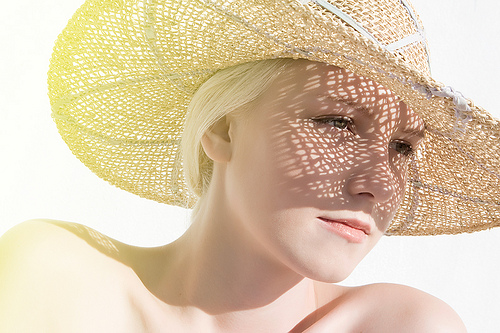
Isn’t it great to see the sun shining more often? Summer is definitely on it’s way, which reminds me to warn everybody to protect themselves from skin cancer. Wear your safe sunscreens rain or shine (zinc oxide is best), and protect yourself from direct sunlight with hats, sleeves, and gloves. This year I also want to deliver an additional warning: If you’ve ever had a suppressed immune system in your life-from cancer, cancer treatments or other illnesses-you must be doubly careful, as your risk of skin cancer is even higher than the rest of the general population.
Here’s why this is such a concern:
- A study of over 700 renal-transplant recipients found that the overall incidence of squamous-cell carcinoma was 250 times that in the general population.1
- Skin cancer that occurs in transplant recipients seems to be uncommonly aggressive, recurrent, and sometimes fatal.2
- HIV/AIDS patients are at seven times higher risk than the population at large for skin cancer.
- Patients who had undergone stem cell transplants showed a higher risk of skin cancer within 2-26 months following treatment.3
- All cases of cancer greatly increase risk, because the cancer itself depresses the immune system, as do the chemotherapy treatments. Lymphocytic leukemia has a particularly devastating effect on the immune system.
- People who have had radiation treatment have a higher risk of getting skin cancer in the area that was treated.
- Rheumatoid arthritis, lupus erythematosis, and other autoimmune diseases also increase risk of skin cancer.
Why does this happen? Science isn’t really sure yet, but there are a couple theories. One is that the period of time when the immune system was suppressed reduces the body’s vigilance against cancer cells and thus makes it more prone to cancer development. Another is that the medications used in treatments that suppress the immune system could sensitize DNA to ultraviolet radiation, making it more susceptible to cancerous changes. A third is that all treatments that involve immunosuppression can damage the skin’s own immune system, leaving it less able to fight off cancerous changes when exposed to UV light.
Regardless of what causes the change, the important thing is to realize that you are at increased risk, and to take the appropriate precautions. Don’t stop with just applying sunscreen. Get used to wearing a broad-brimmed hat and sunglasses. Avoid the sun during peak hours, and wear protective clothing on your arms and legs. Don’t forget to move your visor when you’re driving, as many us get most of our sun exposure on one side of the face. All of us like to enjoy a little sun on our skin, but it’s just not worth having to go through a difficult disease like skin cancer-especially when it seems to be even more dangerous to people who are at higher risk.
Are you at a higher risk of skin cancer? Have any tips for our readers?
Sources
- Hartevelt MM, Bavinck JN, Kootte AM, Vermeer BJ, Vandenbroucke JP. Incidence of skin cancer after renal transplantation in The Netherlands. Transplantation 1990;49:506-509.
- Gerlini G, Romagnoli P, Pimpinelli N. Skin cancer and immunosuppression. Crit Rev Oncol Hematol Oct; 56 (1): 127-35 (2005).
- M Cavalier, et al., Skin cancer after nonmyeloablative hematopoietic cell transplantation. Bone Marrow Transplantation 37: 1103-1108 (2006).
Photo courtesy Evan Romine via Flickr.com.

